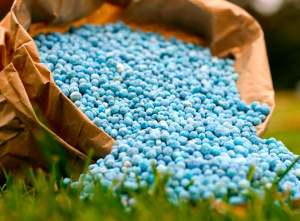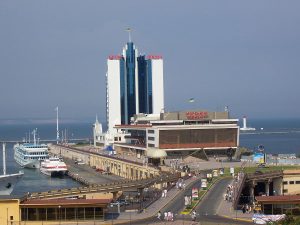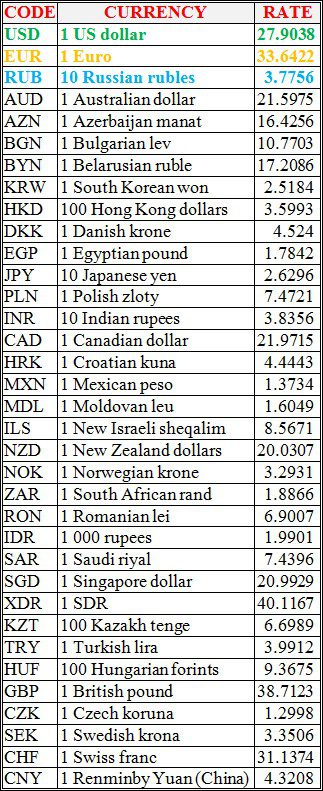
PrJSC Severodonetsk Azot (Luhansk region), part of the group of nitrogen business enterprises Group DF, in 2020 increased the production of mineral fertilizers by 2.2 times, to 843,160 tonnes, the press service of Group DF said on Thursday.
“Compared to 2019, we have more than doubled the production of mineral fertilizers. These figures are the result of the resumption of the full production cycle at the enterprise, the launch of ammonia production plant 1-A. We note growth in all products,” the press service said, citing the chairman of Severodonetsk Azot.
According to it, the production of ammonium nitrate last year increased by 19.5% compared to the previous year, to 444,380 tonnes, urea-ammonium nitrate (UAN) by 3.9 times, to 42,320 tonnes, and technical ammonia water by 2.7 times, up to 4,420 tonnes.
Carbamide production in 2020 amounted to 352,040 tonnes.
Group DF said that 432,860 tonnes of ammonia and 7,490 tonnes of liquid carbon dioxide were also produced in 2020.
“An important moment was the opportunity to include the capacity of the carbamide production shop in operation due to the resumption of its own ammonia production,” the press service said.
According to Group DF, the growth in production in 2020 was facilitated by the affordable price for natural gas (the main raw material in the production of mineral fertilizers), as well as the restoration of reliable power supply after the commissioning of the Kreminska substation. These measures made it possible to connect Severodonetsk Azot and entire Luhansk region to the Integrated Power System of Ukraine.
It is reported that in 2020 the company produced more than 19,000 cubic meters of medical gaseous oxygen in cylinders, which is supplied to hospitals in Luhansk region during the COVID-19 pandemic.
PrJSC Severodonetsk Azot is one of the largest Ukrainian chemical enterprises. It has been part of Dmytro Firtash’s Group DF since 2011. The core business of the enterprise is the production of mineral nitrogen fertilizers.

Odesa maritime merchandise port in January 2021 handled 1.654 million tonnes of cargo, which is 18.4% less than in January last year.
According to the website of the state-owned enterprise Ukrainian Sea Ports Authority, during this period the port reduced the transshipment of export cargo by 23.3%, to 1.243 million tonnes, transit by 27.1%, to 71,610 tonnes, transshipment of imported grew by 11.1%, to 339,350 tonnes.
At the same time, coastal transshipment in January 2021 was not recorded.
Transshipment of dry and bulk cargo in the Odesa seaport for the specified period decreased 33.6%, to 520,830 tonnes, packaged goods by 17.4%, to 1.004 million tonnes. Transshipment of bulk cargoes in turn grew almost fivefold, to 128,910 tonnes.
Container handling in January 2021 amounted to 45,388 TEU (22.2% down).

Central Mining and Processing Plant (Kryvy Rih, Dnipropetrovsk region), part of Metinvest Group, in 2020 reduced the production of merchant pellets by 5.4%, compared to the previous year to 2.27 million tonnes.
According to the audited consolidated financial results released by Metinvest on Tuesday, last year the output of iron ore concentrate at the plant increased by 10%, to 4.904 million tonnes.
Central Mining and Processing Plant is one of the five largest producers of mining raw materials in Ukraine. It specializes in extraction and production of iron ore raw materials – concentrate and pellets.
The plant is part of Metinvest Group, the main shareholders of which are PrJSC System Capital Management (SCM, Donetsk, 71.24%) and the Smart-Holding (23.76%).
Metinvest Group’s management company is Metinvest Holding LLC.

Inhulets Mining and Processing Plant (Kryvy Rih, Dnipropetrovsk region), part of Metinvest Group, in 2020 increased output of iron ore concentrate by 4% compared to 2019, to 12.858 million tonnes.
According to the audited consolidated financial results released by the company on Tuesday, work was carried out last year to modernize the transport infrastructure.
Completion of the construction of a new cyclical flow technology at Inhulets plant is planned in the second half of 2021.
The enterprise specializes in extraction and processing of ferruginous quartzites of Inhulets deposit, located in the southern part of the Kryvy Rih iron ore basin. It produces two types of iron ore concentrate with an iron content of 64.8% and 67%.
The production capacity is 14 million tonnes of iron ore concentrate per year.
Inhulets Mining and Processing Plant is part of Metinvest Group, the main shareholders of which are PrJSC System Capital Management (SCM, Donetsk, 71.24%) and the Smart-Holding (23.76%).
Metinvest Group’s management company is Metinvest Holding LLC.

KSG Agro agricultural holding increased its land bank by 6.7%, to 23,900 hectares, the company’s press service said on Wednesday.
According to the report, the agricultural holding has increased its land bank due to 1,500 hectares of land shares in village Strilkove (Henichesk district, Kherson region), where it plans to grow crops.
The exact names of the products are not indicated.
The vertically integrated holding KSG Agro is engaged in pig breeding and production, storage, processing and sale of grain and oilseeds.
Over the nine months of 2020, the agricultural holding posted $4.77 million in net profit, which is 52% less than in the same period in 2019, revenue decreased by 17%, to $14.67 million.
National bank of Ukraine’s official rates as of 18/02/21

Source: National Bank of Ukraine